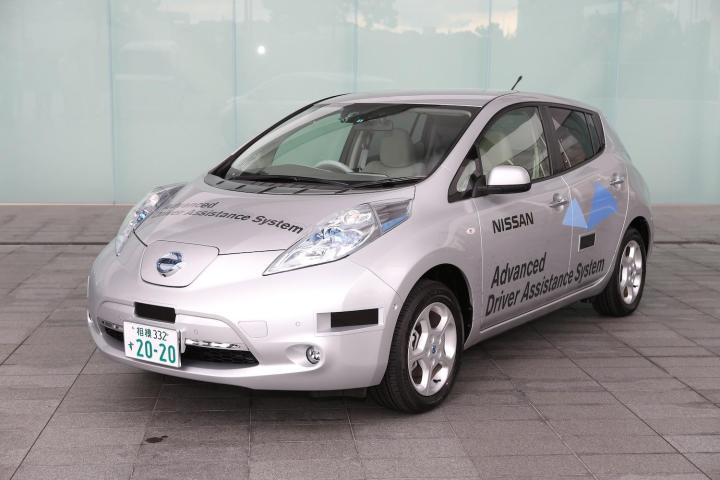
Ladies and gentlemen, the robots are here.
Nissan just announced that it has obtained permission to test the first autonomously driven cars on the public roads of Japan.
The technology is dubbed in brutally unoriginal fashion, “Advanced Driver Assist System.” Seriously, this is a self driving car straight out of sci-fi and that’s the best Nissan could come up with? The system will be installed on the LEAF and is able to do everything from lane keeping to automatically overtaking slow or stopped vehicles. In short; the things we used to call driving.
Like other autonomous driving technologies, the Advanced Driver Assist System uses a combination of lasers, radar, GPS, cameras and what I can only assume is an evil computer brain straight out of the Terminator. Most of these technologies have been in use to some degree or another for a while now, as things like radar guided cruise control and lane departure warnings have become commonplace. In fact, Nissan views this new system as a simple outgrowth of its 360 Degree Safety Shield.
These field tests are a major step in the Japanese automaker’s plan to take over the world by 2020 – I mean introduce commercial and consumer self-driving vehicles by 2020. The data gathered will be used to evaluate and improve the safety and reliability of the technology and the weaknesses of puny human drivers.
While this is a first for Japan, it is not for the LEAF. This twee electric car has been at the forefront of the robot invasion for a while. In Britain it is the basis for the RobotCar program out of Oxford. That version is entirely aftermarket and is currently able to memorize only specific routes.
A recent study has shown that although automakers are keen to get fully autonomous cars in showrooms by 2020, buyers plainly don’t want them.
This apparently won’t stop the technology research, though.Including Google’s pilot program in Nevada and GM’s autonomous cars in Michigan, we can now expect to see autonomous cars on three continents by the end of the year. And I for one thank our new robot overlords. All hail the machines!
Editors' Recommendations
- Dubai Police to deploy driverless patrol cars with AI smarts
- The best commuter cars
- Apple Car will be fully autonomous with no driver input, insiders claim
- Why driverless cars are ugly, and how BMW plans to change that
- Drivers needed (sort of): Einride wants remote pilots for its driverless pods


